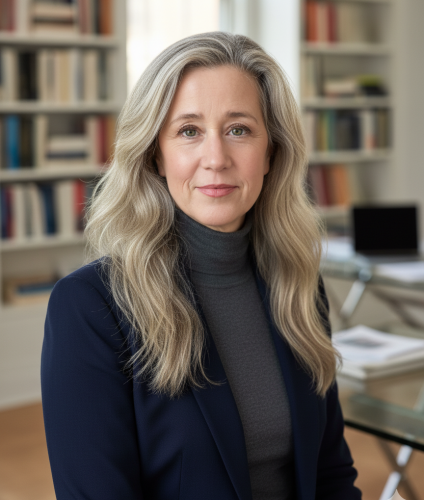
Affiliated Departments & Programs
In 2016 she co-developed the first human-centered AI curriculum and co-founded Kenyon's AI Lab. Recipient of Kenyon’s Senior Trustee Teaching Award, she was awarded an NEH Teaching Professorship for curriculum innovation and became one of the first in the world to advocate for leveraging AI in the service of humanities and social science research. Since then she has given over a dozen keynotes and appeared in various media outlets, where she talks about both the risks and opportunities of generative AI.
She is a member of Meta's Open Innovation AI Research Community, the multi-national group Public AI, Women in AI, and AI in Education. She has also served as co-PI representing the Modern Language Association for the U.S. AI Safety Institute and for the IBM/Notre Dame Tech Ethics Lab. Her passion is supporting voices in AI and computing that are typically underrepresented, and she has mentored over 300 AI/ML student research projects that have been downloaded tens of thousands of times from digital Kenyon by over a thousand institutions in over one hundred countries.
Areas of Expertise
Human-centered AI, Multimodal and Multilingual Generative AI, Affective AI, Narrative, Translation, Explainable AI, Bias and Fairness, AI Regulation, AI Ethical Auditing and AI Safety
Education
2002 — Doctor of Philosophy from Univ. of California Berkeley
1990 — Bachelor of Arts from Yale University